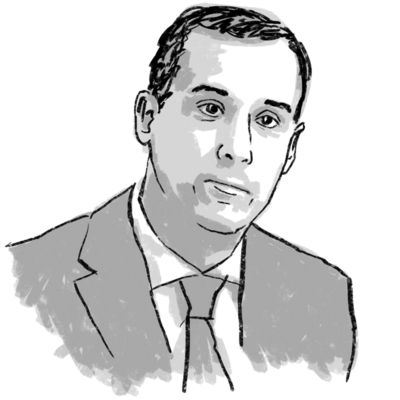In quiet ceremonies next week, the people in the Czech capital of Prague will commemorate the 50th anniversary of an event that still reverberates across much of Europe. On the night of Aug. 20, 1968, the tanks and troops of the Soviet empire rolled into the city to end what was called the Prague Spring.
In the months before the Moscow-led invasion, the head of then-Czechoslovakia, Alexander Dubček, had reversed some basic elements of Soviet ideology by reducing state control of industry and embracing the dignity of individuals in choosing their own form of government.
He had exposed the big lie of communism – namely that fear and domination were necessary to further a cause guided solely by a self-selected elite.
Dubček was deposed by the Kremlin and communist rule was reinstated in Czechoslovakia. But the Soviet claim to historical supremacy was never the same. A bubble was popped. Moscow’s exercise of physical power in Prague, based on the Marxist notion of material values, ended up spawning a movement that relied on truth-telling, not guns or violent protests, as the real power.
The movement was led by a Czech playwright and dissident, Václav Havel. His greatest essay, “The Power of the Powerless,” asked people to “live in truth,” using daily small acts to expose the fabrications of authoritarian rulers that force people to “live a lie.”
Consciousness, not material conditions, controls one’s being and freedom, he said. And hope “is not the conviction that something will turn out well, but the certainty that something makes sense, regardless of how it turns out.”
By 1977, the movement led to a human rights organization known as Charter 77. It helped dissidents behind the Iron Curtain speak out about universal ideals and reveal the kind of falsehoods and fears that prop up dictatorships. By 1991, the Soviet empire had collapsed from within, largely without violence in its final fall. Mr. Havel then became the elected president of his fully independent and democratic nation (which later split into Slovakia and the Czech Republic).
The Prague Spring is just one important event of the cold war. Yet its 50-year legacy in truth-telling has carried over into many countries today that are battling the mass disinformation campaign of Vladimir Putin’s Russia.
President Putin’s ideology of ethnic nationalism and heroic authoritarianism is not communism. Yet it, too, relies on suppressing dissent and a controlled media while trying to undermine democracy in other countries, especially near Russia’s borders.
Since 2014, the biggest target of Russian propaganda has been Ukraine because it had liberated itself from Putin’s influence in the so-called Maidan Revolution and in its drive to eventually join the European Union. While Russia later took the Crimean Peninsula by force and still supports armed rebellion in Eastern Ukraine, it uses social media and other information outlets to bombard Ukrainians with fake news or half-truths that imply the country is run by fascists or that the West is the enemy.
This has led to many Ukrainians organizing themselves to learn how to fact-check news stories. The late Swedish researcher Hans Rosling calls this “factfulness,” or learning to discern what qualifies as real and achieve what he termed “understanding as a source of mental peace.”
Ukraine’s leading fact-checking group is a project known as StopFake, started by journalists and others to counter fake news. It has nearly 200,000 followers on social media and runs programs on Ukrainian television.
With its success, it has begun to provide similar fact-checking in other countries, including Russia, that are the brunt of Kremlin propaganda. StopFake relies heavily on donations from abroad as well as local volunteers. One donor in particular stands out: the Czech Republic. Fifty years on, the events that started with the Prague Spring keep echoing into the future.
 Arthur Bright
Arthur Bright











